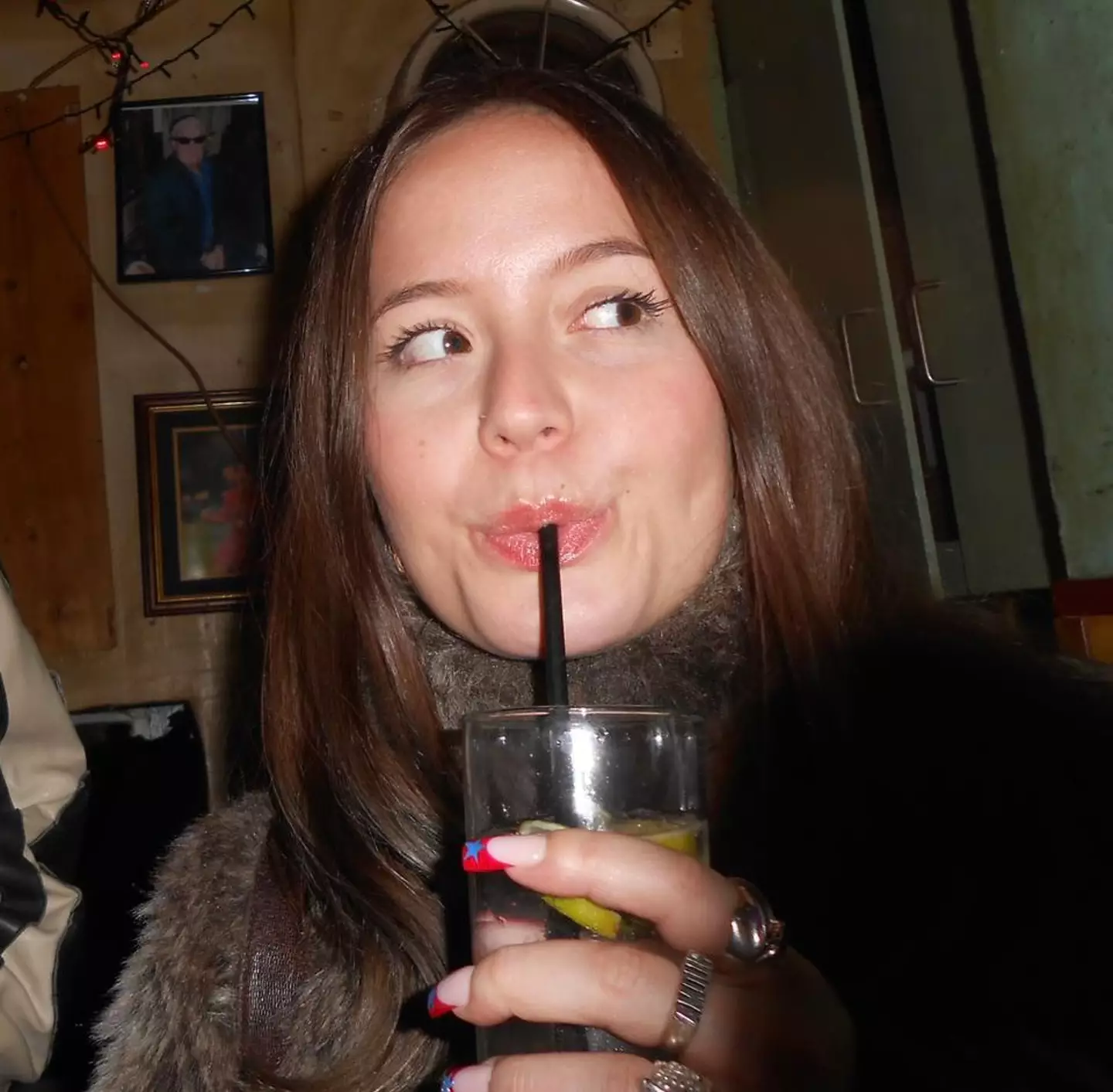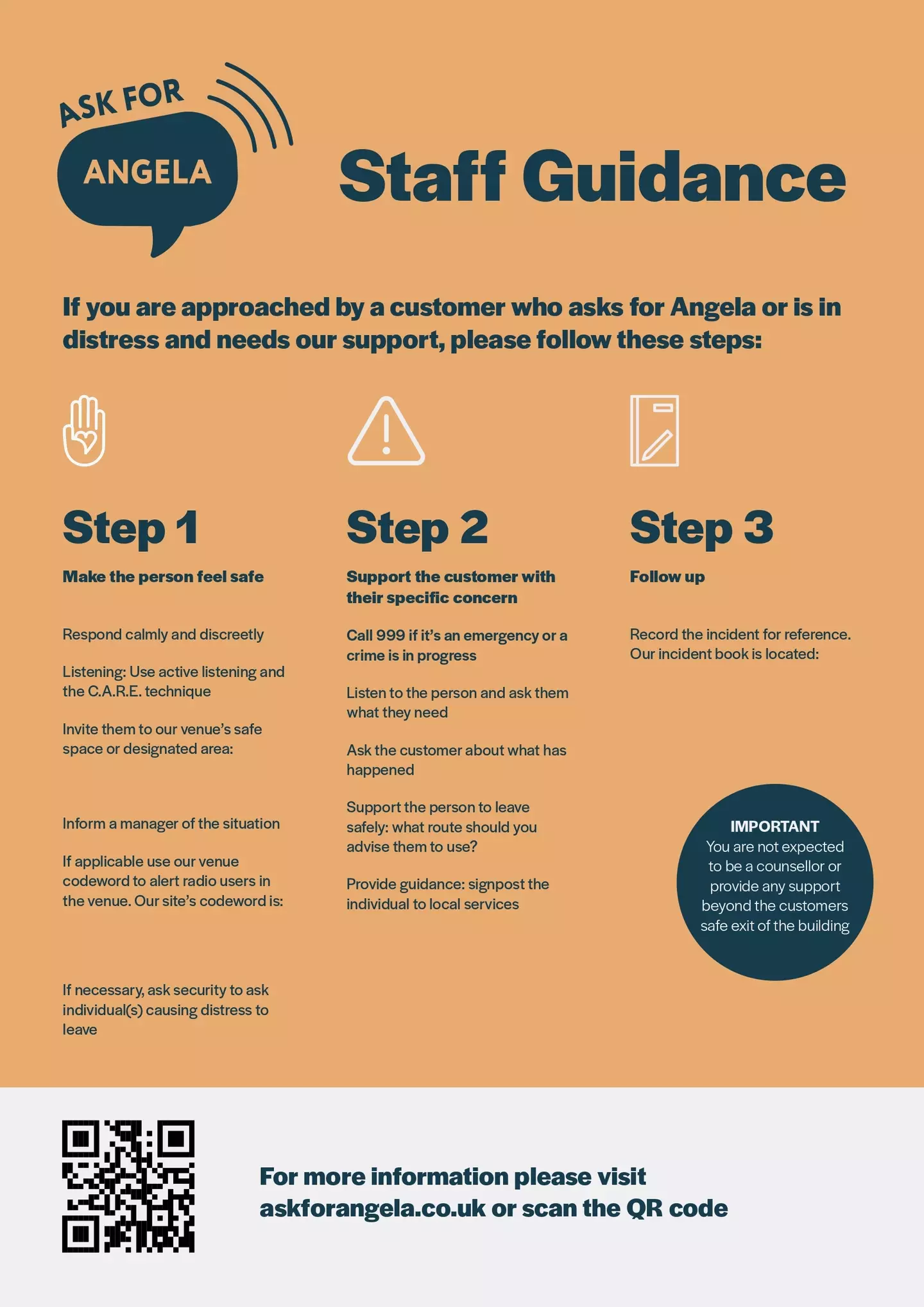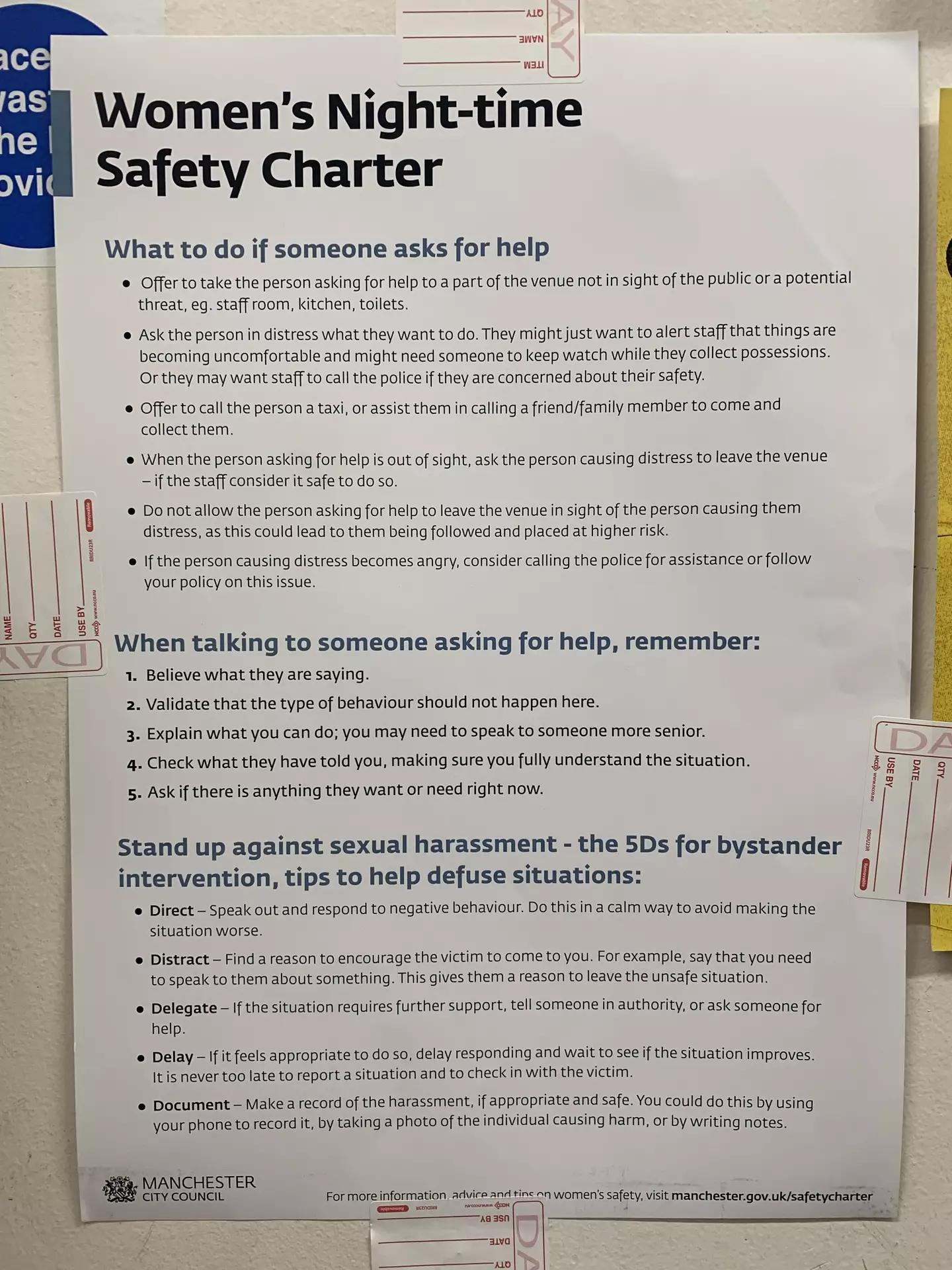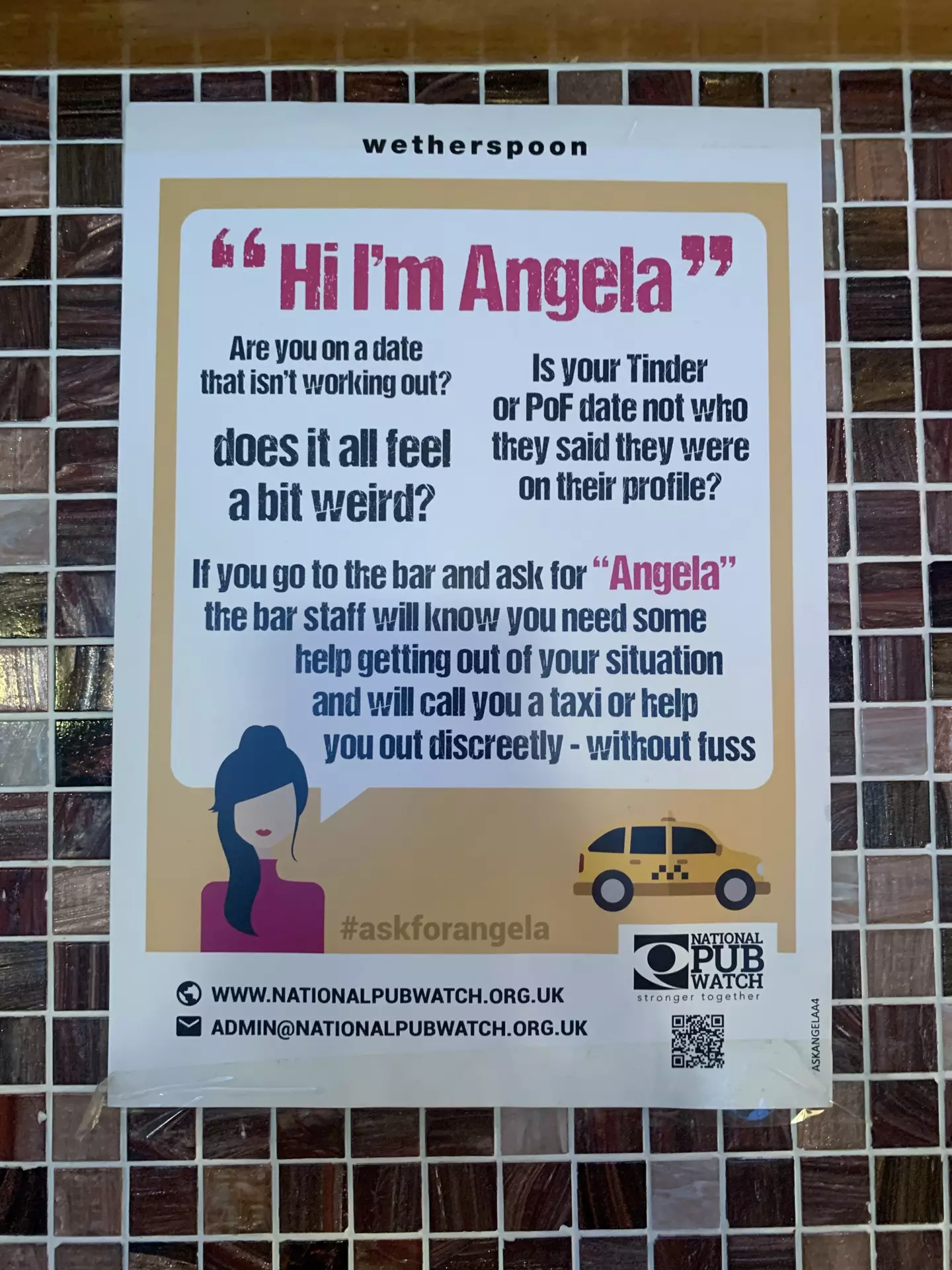
Back in October, I decided to conduct an investigation to find out what would actually happen if you 'asked for Angela' at 10 bars across Manchester.
Now, the official way the safety initiative should work is by training staff in vulnerability management for when someone subtly 'Asks for Angela' - a coded way people can request help from staff if they feel uneasy on a date, fear their drink may have been spiked, or generally feel concerned about their safety.

Advert
Ideally, the trained member of staff will understand the person needs help and support and will be able to respond in 'an appropriate, discreet way'.
"They might call security, lead the person to a safe space, or help them leave the premises unnoticed." the website adds.
However, from my investigation, I found this was far from a standard practice.
I put the scheme to the test at a range of prime date locations and after-work favourites, from sprawling old-fashioned pubs and high street chains to busy music venues and quieter independent bars.
Advert

Putting 'Ask for Angela' to the test
One bartender in Manchester's buzzing Northern Quarter simply told me: "I don't know who that is' before asking: "Do you have the right bar?"
Two other bartenders in Deansgate seemingly weren't aware of the code phrase and similarly made me qualify my question three times, although both venues were aware of the scheme when I probed further - claiming to have 'far less formal' in-house training, with one bartender noting that no one 'external' from the scheme had come in.
Advert
Another bartender who worked at a chain pub nearer to Salford straight up told me that she had 'no training whatsoever'.
But when I asked another Northern Quarter bartender, he asked: "Is everything okay?" instantly understanding the code term - something that pleasantly surprised me after my first few unsatisfactory responses.
Just across the road at a small club, another bartender asked if I was okay and offered to bring me to the side of the bar to chat in private.

A shocking result
After I assured her I was fine, she explained that she had received 'Good Night Out' training, while her colleague said she had official 'Ask for Angela' training in her previous place of employment, a Wetherspoon pub.
Advert
So, I headed to the nearest Spoons to ask them the question and was seriously shocked with what followed.
This pub was absolutely heaving - by far the busiest one of the 10 places I went to - and, with a growing queue forming behind me at the bar, I asked: "Is Angela there?"
Even through the chaos of a post-work rush, the bartender knew what to do straight away. I was instantly taken to a private room away from the bar, where she asked me how I was feeling and what I wanted her to do to help.
After explaining the investigation, I had an illuminating chat with her and her manager, who later joined the discussion after she gave him a 'thumbs up' that all was OK through the glass of their break room.
Advert
The bartender, who had only worked as one for three months, said she got the training in her induction.

The manager also shared that the staff have 'refresher courses every three months' covering 'what steps to take to ensure it’s carried out correctly'.
Even though their responses were A+, he explained that in the six years he’s worked at that pub - he’s never had someone ask him or any of his colleagues for Angela.
This seemed a recurring theme, as a pair of women who worked at a wine and craft beer bar further out of town knew to immediately take me to another area before asking if I was alright.
Similar to the others, they told me that while they’ve never had someone ask for Angela, they felt 'more than comfortable' intervening and getting involved should a case of harassment rear its head.

My thoughts
Now, I want to make very clear that at no point during this investigation was I trying to shame hospitality venues, critique staff members or call out the 'Ask for Angela' scheme, which is doing incredible work across the country.
Instead, I simply wanted to raise awareness that the current parameters we have in place to stop harassment and spiking in nightlife venues simply aren’t working in isolation.
While it has helped people over the past eight years, its flaws are difficult to ignore - and are clearly already known by those promoting it.
So I'm calling for more active efforts from local councils, police and hospitality venues to put extra measures in place to combat the problem head-on at the source rather than give potential victims yet another way to remedy an issue they've got absolutely nothing to do with.
What has 'Ask for Angela' done since my investigation?
I had already shared my findings with Sylvia Oates, the Director of 'Ask for Angela', who explained that due to 'the lack of centralised setup support for organisations', it meant that the scheme wasn't 'implemented consistently' - giving rise to the issues I 'identified'.
And since then, there's been a lot more awareness raised around the scheme - including a BBC article doing the same investigation which was published a month after I conducted my experiment.
Two months after my investigation, Sylvia shared with me the latest update surrounding the scheme.

In a statement to Tyla, she said: "We're really pleased with the progress we've made with the 'Ask for Angela' scheme over the past few weeks.
"We've convened a national meeting with senior police officers, council representatives, pub operators and other key stakeholders to enhance the scheme's implementation and ensure consistency across the UK.
"Many towns and cities have since launched impactful initiatives in their areas, such as distributing free resources to venues and conducting visits to test the scheme's effectiveness."
Sylvia added: "These efforts have garnered highly positive feedback, with an average pass rate of 80% in compliance tests. "Examples of this activity include the West Midlands, where you can see the activity in question via this TikTok video, and Cambridge, which has seen significant success in their local testing.
"This collective effort highlights the commitment of venues and local authorities to providing safer spaces and empowering those who feel vulnerable to seek help confidently."
Topics: Life, Advice, Tyla Exclusive, UK News, News, Food and Drink, Crime